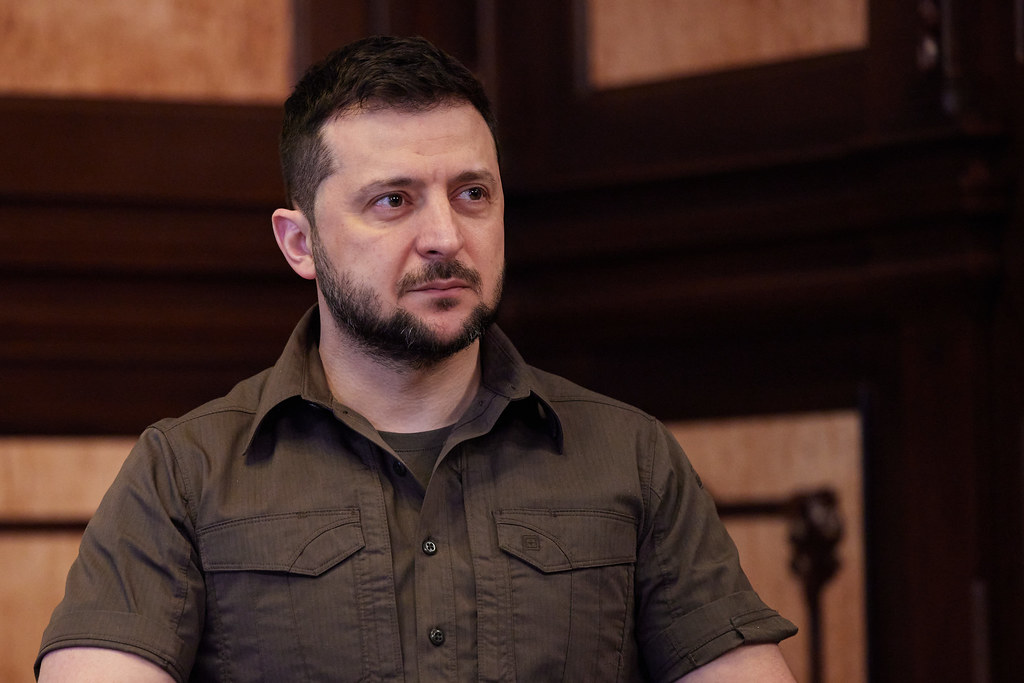
US President Joe Biden concluded his European visit, emphasizing the resilience of NATO and its capacity to counter Russian President Vladimir Putin. Nevertheless, while these diplomatic achievements were made abroad, concerns persist regarding the ongoing war’s future trajectory.
In Helsinki, Biden concluded his trip, noticeably contrasting the approach of the previous American leader who visited the Finnish capital. In the same week, five years ago, Donald Trump aligned himself with Putin, disregarding the conclusions of America’s intelligence agencies regarding Russian interference in the 2016 election. In contrast, Biden highlighted the effectiveness of the alliance formed to impede Putin, noting that NATO has only strengthened following Russia’s invasion of Ukraine.
During a concluding press conference, President Biden asserted that Putin has already suffered defeat in the war. Biden highlighted Putin’s predicament and posed questions about his next moves and the means by which he could bring an end to the conflict. The President suggested that Putin has the power to swiftly terminate the war by simply declaring his withdrawal.
Leaving Europe on a triumphant note, Biden celebrated the inclusion of Sweden in the alliance and emphasized the personal significance of transatlantic unity. In a pivotal speech delivered at the NATO summit in Lithuania, Biden defended his policies and rallied democracies to continue the fight against tyranny, specifically referencing Ukraine and global contexts. Additionally, Biden addressed the concerns of Ukrainian President Volodymyr Zelenskyy, who appeared less aggrieved over the Vilnius summit’s course of action, which initially perceived NATO’s delay in admitting Ukraine to the alliance.
However, lingering uncertainties and unanswered questions persist regarding the future steps in Europe’s most significant land conflict since World War II. Biden faces the challenge that many aspects of what follows are beyond his complete control.
The potential transfer of F-16 warplanes to Turkey, subject to congressional approval, could influence Ankara’s decision-making regarding Sweden’s accession to the alliance. Furthermore, sustaining long-term commitments to Ukraine, which Biden likens to the United States’ support for Israel, necessitates the commitment of congressional lawmakers to maintaining their support over the course of years. The Ukrainian counteroffensive has faced setbacks, prompting allies and senators to reconsider their backing.
Concerns regarding Ukraine’s arsenal are genuine, with reduced supplies leading the United States to make the controversial decision to send cluster bombs. Doubts among Republicans regarding continued funding for Kyiv at current levels have grown louder. Regarding the sluggish start of the Ukrainian counteroffensive, Biden shared with reporters that even Zelenskyy admitted to the challenging nature of the situation.
Looking ahead to next year’s U.S. election, it is highly plausible that the Republican frontrunner, Trump, could dismantle the progress achieved by Biden within a few months of reclaiming the Oval Office. This potential scenario loomed over the Helsinki gathering, where two other figures cast their shadows.
The reverberations of Trump and Putin’s summit in July 2018 resonated throughout Biden’s meeting with Finnish President Sauli Niinistö. The news conference on Thursday took place in the very room within Finland’s presidential palace where Trump had sided with Putin over his own government’s conclusions when asked by a reporter, “who do you believe?”.
Currently, Putin finds himself isolated internationally, having become a global outcast following his brutal invasion of Ukraine over 500 days ago. As his military faces setbacks, much of the Western world unites in support of Kyiv. Notably, the expansion of NATO now includes Finland, a country sharing an 800-mile border with Russia that had to abandon its longstanding neutrality to join the alliance.
In contrast, Trump has indicated his intention to abandon Ukraine and reconsider continued NATO membership. Both Biden and Niinistö attempted to downplay the potential threat a Trump return would pose to the alliance. Biden expressed firm assurance that the U.S. would unequivocally remain in NATO, emphasizing bipartisan support while downplaying the influence of extremist elements within one party. However, he later acknowledged that no one can guarantee the future, despite considering it the most favorable outcome.
During the NATO summit, the U.S. congressional delegation employed a firm approach in private meetings with allies. While the administration offered incentives, the delegation conveyed a more forceful message, insisting that NATO members must increase their defense spending. The United States emphasized that it cannot bear the burden alone.
“In the Congress, there is a growing, serious frustration with the lack of other countries keeping their commitments,” said Sen. Dan Sullivan (R-Alaska), a long-time advocate for getting NATO members to spend at least 2 percent of their GDP on their security.
“It’s a topic that unifies Democrats and Republicans, because it’s an issue of fairness. We all want a sustainable, strong NATO, but it’s not sustainable and strong when there’s a sense that the burden has not been shared.”
Zelenskyy’s departure from Vilnius was marked by disappointment over the absence of immediate NATO membership for Ukraine. While this outcome may have political repercussions domestically, he did not return empty-handed. Significant commitments of financial aid and support for both security and economic aspects were secured from NATO members and G-7 nations. These pledges aim to provide Kyiv with a substantial advantage throughout the prolonged conflict.
Nonetheless, even the bipartisan congressional delegation approached the prospect of Ukraine’s swift inclusion into NATO with caution. However, Senator Dick Durbin, the second-ranking Democrat in the Senate, assured Zelenskyy that an offer would eventually be extended to Ukraine.
The Biden administration consistently emphasized, both publicly and privately, that Ukraine was not yet prepared for NATO membership, even if the ongoing war with Russia were to conclude in the near future. On Thursday, President Biden reiterated the stance that Ukraine’s future lies within NATO, while refraining from providing any specific timeline or timetable for such a development.




